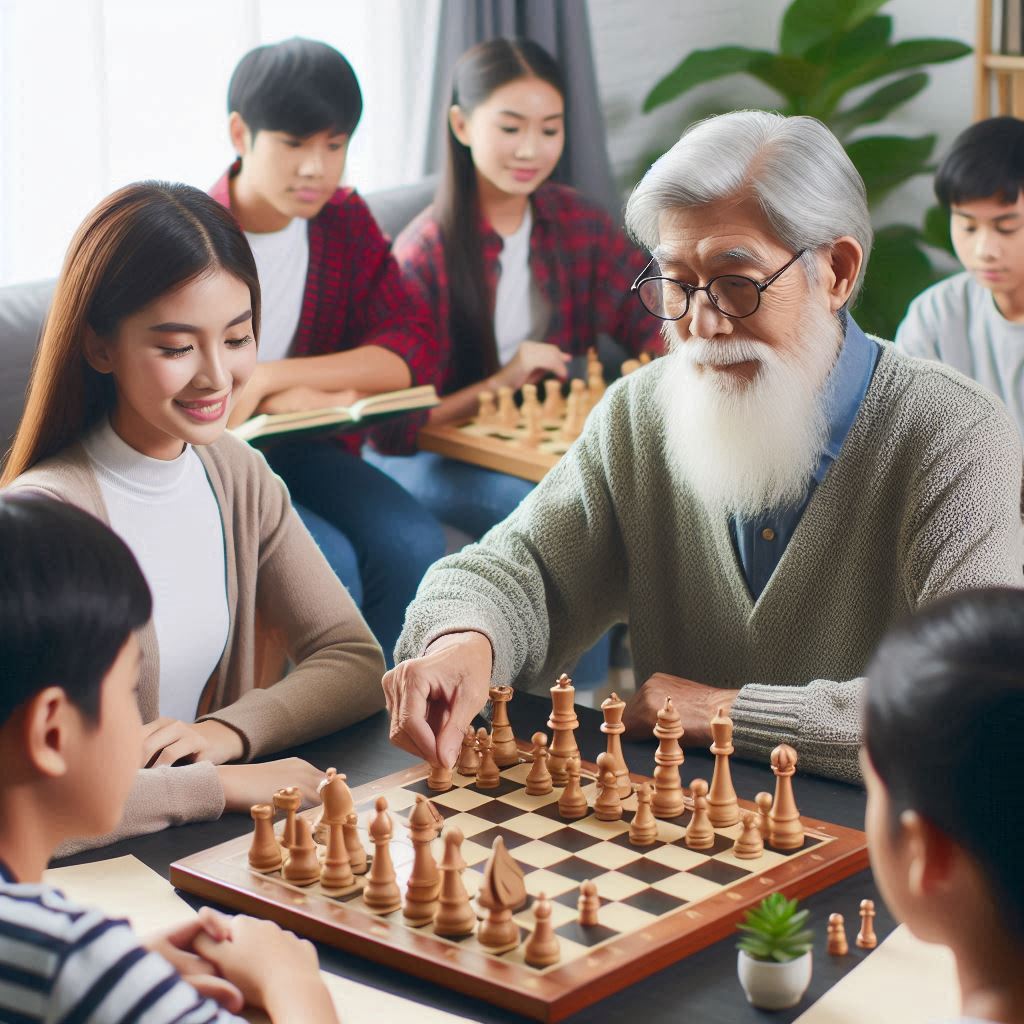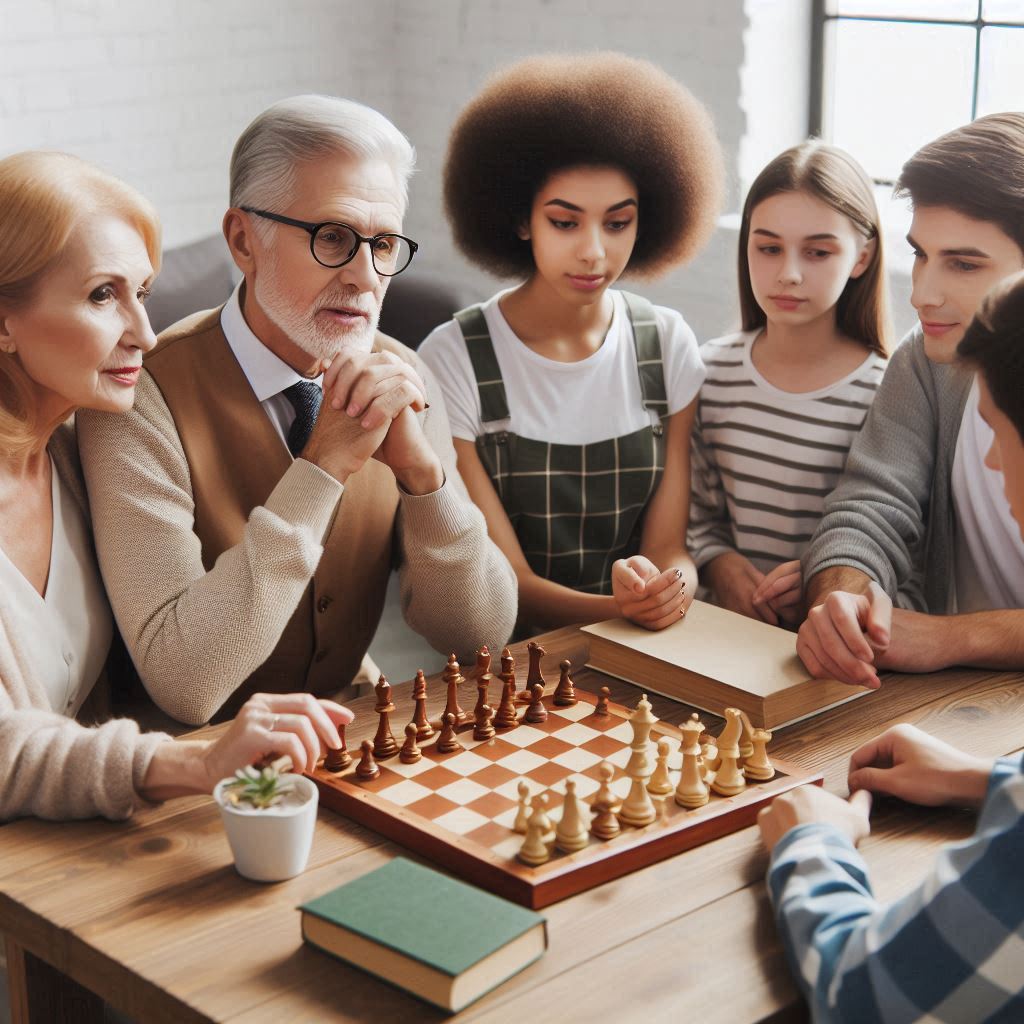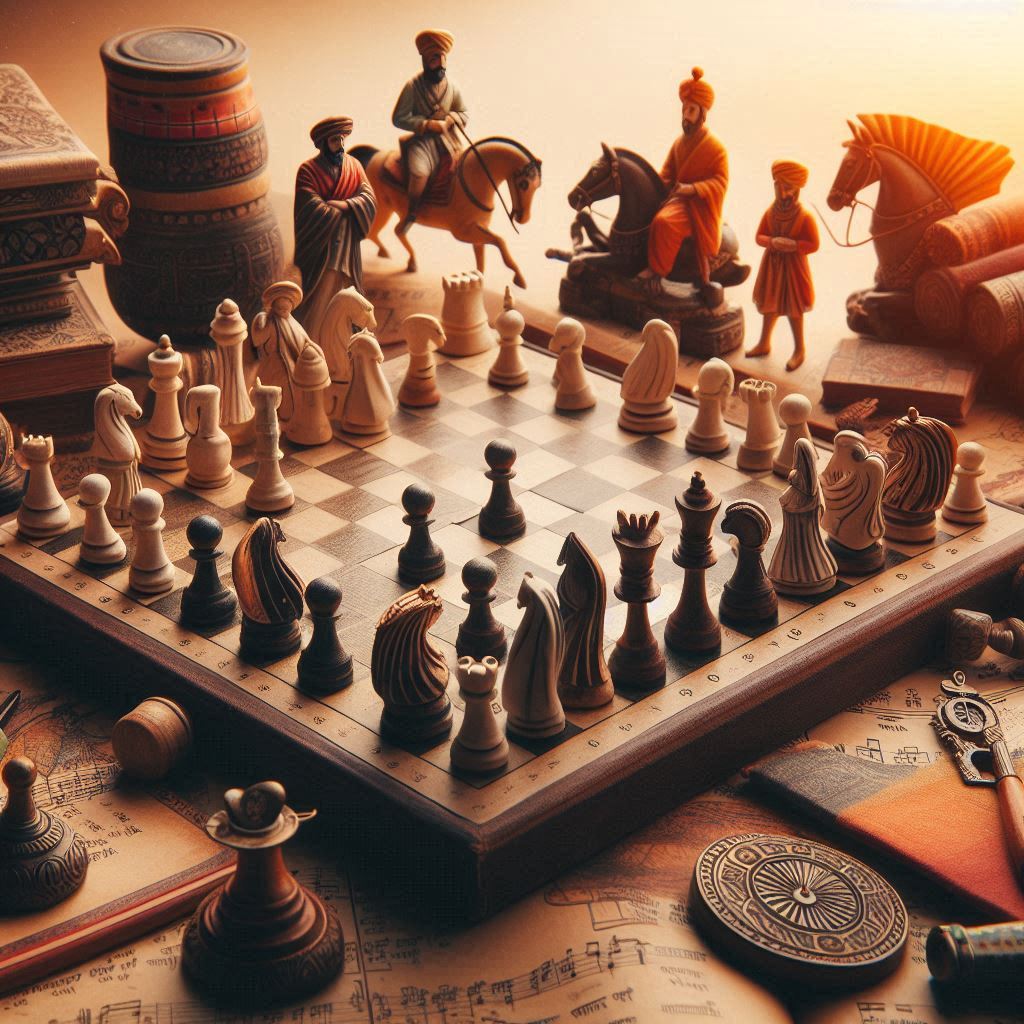Introduction
Mentoring advanced chess students is a rewarding yet challenging task. These students have already mastered the basics and possess a strong understanding of intermediate concepts. The role of a mentor is to guide them towards mastery, helping them refine their skills, deepen their strategic thinking, and prepare for high-level competition. This article explores effective strategies for mentoring advanced chess students, ensuring they reach their full potential.
Understanding Your Student’s Strengths and Weaknesses
Personalized Assessment and Focus Areas: Begin by assessing your student’s current level of play. Identify their strengths and weaknesses through game analysis, and tailor your mentoring approach accordingly. Focus on reinforcing strengths while addressing areas that need improvement.
Developing a Comprehensive Study Plan
Structured Approach to Learning and Improvement: Create a detailed study plan that covers all aspects of chess, including openings, middle game strategies, endgames, and psychological preparation. Set short-term and long-term goals, ensuring a balanced approach to different areas of the game.
Advanced Opening Preparation
Tailoring Opening Repertoires to Individual Styles: Work with your student to develop an opening repertoire that suits their playing style and strengths. Study advanced opening theories, variations, and the latest trends to keep their repertoire up-to-date and competitive.
Deepening Middle Game Strategies
Enhancing Tactical and Positional Understanding: Focus on improving your student’s middle game through advanced tactical exercises and positional understanding. Encourage them to study classic games and learn from the strategic ideas of top players.
Mastering Endgame Techniques
Key Endgame Principles and Practice: Endgames are crucial for converting advantages into victories. Teach your student essential endgame principles, such as king activity, pawn structure, and opposition. Provide them with challenging endgame studies to solve.
Analyzing Games and Providing Feedback
Detailed Game Analysis and Constructive Feedback: Review your student’s games thoroughly, highlighting both good moves and mistakes. Provide constructive feedback and suggest improvements. Encourage them to analyze their games independently and learn from each encounter.
Encouraging Independent Study
Fostering Self-Learning and Critical Thinking: Promote independent study by recommending chess books, online courses, and training software. Encourage your student to solve puzzles, study games, and engage in self-analysis. Critical thinking and self-learning are vital for continuous improvement.
Mental and Psychological Preparation
Building Resilience and Managing Competitive Stress: Mental toughness is essential for high-level competition. Teach your student techniques for managing stress, maintaining focus, and staying resilient under pressure. Discuss the importance of a positive mindset and self-belief.
Using Technology and Resources
Leveraging Tools and Resources for Advanced Learning: Utilize chess engines, databases, and training software to enhance your student’s learning experience. Tools like ChessBase, Stockfish, and online platforms provide valuable resources for analysis and practice.
Incorporating Tournaments and Matches
Practical Experience Through Competitive Play: Encourage your student to participate in tournaments and matches regularly. Competitive play provides practical experience and helps them apply their skills in real-game situations. Analyze their performance and discuss strategies for improvement.
Fostering a Growth Mindset
Encouraging Continuous Improvement and Learning: Instill a growth mindset in your student by emphasizing the importance of continuous learning and improvement. Celebrate their progress and achievements, but also encourage them to view setbacks as opportunities for growth.
Developing Time Management Skills
Effective Use of Time in Study and Competition: Teach your student effective time management skills for both study and competition. Help them create a balanced schedule that includes regular practice, rest, and review. In competitive play, emphasize the importance of time control and decision-making.
Building a Strong Mentor-Student Relationship
Trust, Communication, and Motivation: A strong mentor-student relationship is built on trust, open communication, and mutual respect. Be supportive and motivating, providing constructive criticism and encouragement. Understand your student’s goals and aspirations, and work together to achieve them.
FAQs
How do I assess my student’s strengths and weaknesses?
Analyze their games, observe their play, and discuss their thought process to identify strengths and areas for improvement.
What should an advanced study plan include?
A comprehensive study plan should cover openings, middle game strategies, endgames, psychological preparation, and practical play.
How can I help my student improve their opening repertoire?
Tailor their opening repertoire to their playing style, study advanced theories, and keep up with the latest trends and variations.
Why is independent study important for advanced chess students?
Independent study fosters critical thinking, self-learning, and continuous improvement, essential for reaching higher levels of play.
How can I build mental toughness in my student?
Teach stress management techniques, maintain focus, and resilience, and emphasize the importance of a positive mindset and self-belief.
What tools and resources are useful for advanced chess training?
Chess engines, databases, training software like ChessBase, and online platforms provide valuable resources for analysis and practice.
Conclusion
Mentoring advanced chess students requires a balanced approach that combines personalized guidance, structured study, and practical experience. By understanding their strengths and weaknesses, developing a comprehensive study plan, and fostering a growth mindset, you can help your students reach their full potential. Use technology and resources to enhance their learning experience, and build a strong mentor-student relationship based on trust and open communication. With dedication and the right approach, you can guide your students to achieve mastery and success in the world of chess.



